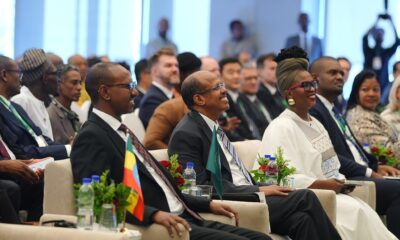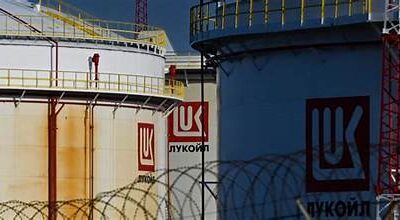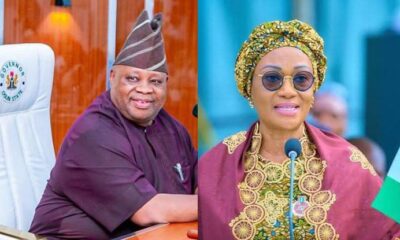National Issues
A Tale of Two Nigerias: The Chasm Between Presidential Proclamations and Harsh Realities -By Jeff Okoroafor
Until the Tinubu administration and governors like Hope Uzodimma replace self-congratulation with genuine empathy and radical, people-centered policies, the worst days are not behind us. They are our present, grim reality, with an even more uncertain future looming on the horizon. The resilience of the Nigerian people is being tested like never before, and no amount of presidential rhetoric can obscure the fact that the nation is failing.

President Bola Ahmed Tinubu’s recent declaration in Owerri that “Nigeria’s worst days are over” echoes in a nation where the sound of empty stomachs and the wail of mourners are the true national anthem. This statement, made amidst the pomp of commissioning projects, is not just a misdiagnosis of the national malaise; it is a profound disconnect from the agonizing realities faced by millions of Nigerians. To understand the depth of this chasm, one must trace the trajectory of national decline from the era of Goodluck Jonathan, through the devastating eight years of Muhammadu Buhari, and into the current accelerated collapse under Tinubu’s Renewed Hope Agenda, which has rapidly devolved into a renewed hardship mandate.
While the Goodluck Jonathan administration was rightly criticized for corruption and security challenges, particularly with the Boko Haram insurgency, it presided over an era where Nigeria became Africa’s largest economy. The price of petrol was N87, and though poverty was significant, it had not reached the catastrophic, multi-dimensional depths we see today. The election of Muhammadu Buhari in 2015 on a wave of promises to crush insecurity, fight corruption, and revive the economy now stands as one of the greatest betrayals of trust in Nigeria’s political history. His eight-year tenure systematically dismantled the nation’s resilience.
Under Buhari, insecurity did not diminish; it metastasized. Boko Haram was not defeated but merely saw rivals emerge. Banditry became a lucrative industry in the Northwest, with terrorist camps established in forests. Kidnapping for ransom evolved into a national crisis, and secessionist agitations in the Southeast intensified, met with a brutal military response. Farmers were driven from their lands by Fulani herdsmen, laying the early groundwork for the current food crisis. Economically, Buhari’s administration was a catastrophe. It printed trillions of Naira through ways and means financing, directly fueling the inflation we suffer today. His erratic foreign exchange policies created a vast chasm between the official and parallel market rates, enriching a select few in a corrupt arbitrage ecosystem. The economy witnessed two recessions, and the national debt ballooned, with nothing to show for the borrowing. Consequently, the World Bank reported that under Buhari, Nigeria—despite its resource wealth—became the poverty capital of the world. The number of Nigerians living in multidimensional poverty soared, a direct consequence of economic stagnation, inflation, and jobless growth.
If Buhari’s era was a slow-burning fuse, Tinubu’s administration has been the explosion. On May 29, 2023, his declaration, “Subsidy is gone,” without a credible mitigation plan, was an economic shock therapy that has paralyzed the nation. The immediate tripling of petrol prices to over N700 per liter (and still climbing) triggered a chain reaction of hyper-inflation. The cost of transportation, food, and every essential commodity has skyrocketed, rendering the savings of the average Nigerian worthless. This was swiftly followed by the Naira devaluation fiasco. The poorly implemented unification of the exchange rates further crushed the currency, which collapsed from around N460/$1 to a staggering N1500/$1 at one point. This has crippled businesses reliant on imports, spiked the cost of debt servicing, and made the country poorer on a global scale.
President Tinubu now cites a GDP growth of 4.23% and a drop in inflation to 20.1% as signs of progress. However, these figures are cold comfort to a populace that cannot afford a square meal. A GDP growth rate that does not translate into job creation or improved welfare is a statistical illusion. An inflation rate of 20.1% remains one of the highest in the world and is catastrophic for a population whose incomes have remained stagnant. This is not economic progress; it is an economic depression for the masses, masked by technocratic jargon. The result is a Nigeria where hunger is the new normal. A recent report by the National Bureau of Statistics revealed that over 133 million Nigerians suffer from multi-dimensional poverty. Suicides are on the rise, and the “Japa” wave of emigration has become a flood, as the youth and professionals lose all hope in the future of their country.
President Tinubu’s choice of Imo State as the venue for his optimistic proclamation is particularly ironic. Under Governor Hope Uzodimma, Imo has become a case study in the failure to deliver democratic dividends. The state is one of the epicenters of the insecurity plaguing the Southeast. The clash between security forces and political sponsored separatist groups has created a state of perpetual fear. Extrajudicial killings, the infamous “unknown gunmen” phenomenon, and brutal military reprisals have made life solitary, poor, nasty, brutish, and short for the average Ndi-Imo. Rural communities are terrorized, and the social fabric is torn. To commission flyovers in the state capital, Owerri, while the hinterlands are burning is to celebrate the deck chairs on the Titanic.
Economically, while Governor Uzodimma boasts of legacy projects, the people of Imo grapple with the same hyper-inflation and economic devastation as the rest of the country. Civil servants and pensioners have consistently protested non-payment of salaries and pensions, a fundamental breach of the social contract. The state’s infrastructure outside the showcase projects in Owerri remains dilapidated. The claim of progress in education and welfare is starkly contradicted by the reality of closed businesses, impoverished citizens, and a despairing populace.
The commissioning of a book titled “A Decade of Impactful Progressive Governance” while the nation it governs lies in ruins is a tragic piece of political theatre. The truth is that the decade of the All Progressives Congress (APC) has been a decade of impactful regression. Nigerians do not need another flyover or a glossy book; they need security. They need food on their tables. They need a currency that has value. They need a government that acknowledges their suffering rather than one that insultingly declares it over. Until the Tinubu administration and governors like Hope Uzodimma replace self-congratulation with genuine empathy and radical, people-centered policies, the worst days are not behind us. They are our present, grim reality, with an even more uncertain future looming on the horizon. The resilience of the Nigerian people is being tested like never before, and no amount of presidential rhetoric can obscure the fact that the nation is failing.
Jeff Okoroafor is a social accountability advocate and a political commentator focused on governance, accountability, and social justice in West Africa.










